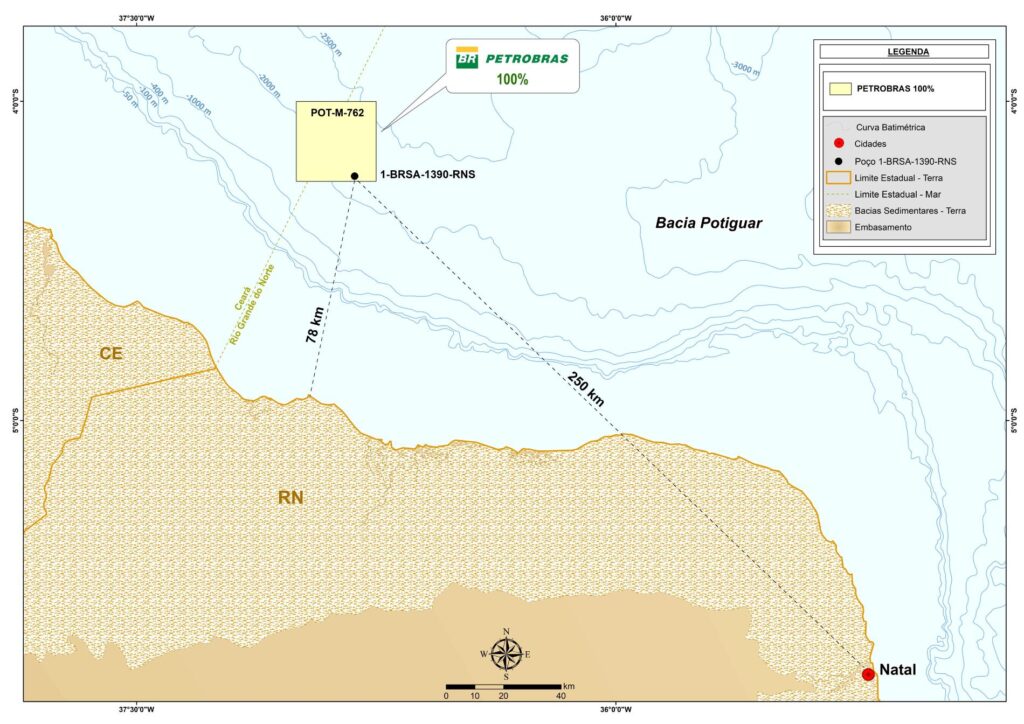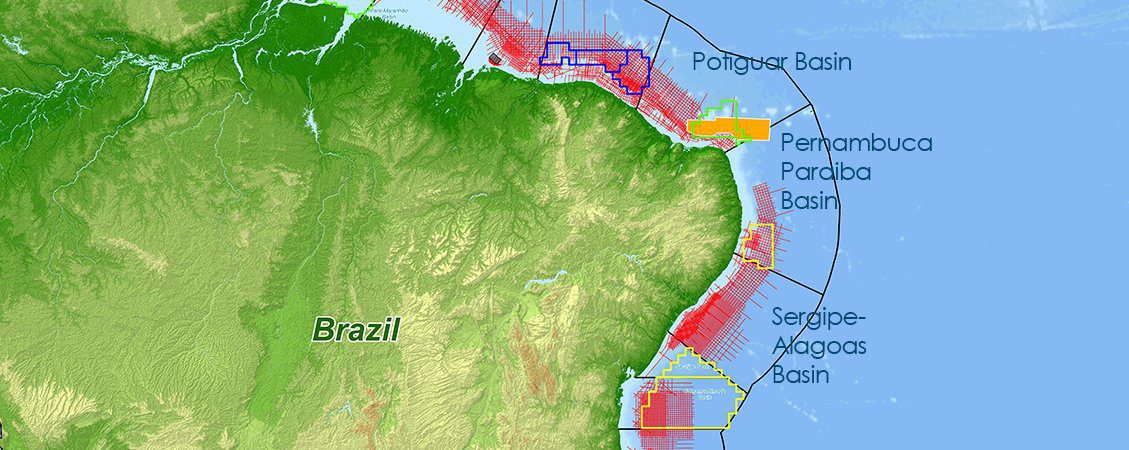Petrobras has struck oil in a well located in Brazil’s Potiguar Basin, during a campaign it embarked on in earnest to repeat exploration successes off the coasts of Guyana and Suriname. Announcing the find in an April 9 release, Petrobras said its neighbors’ successes “corroborate the importance of Petrobras continuing its campaign in the Brazilian Equatorial Margin Basins, as provided for in its 2024-2028 Strategic Plan.”
Brazil’s state oil explorer said it discovered an accumulation of oil in ultra-deep waters of the Potiguar Basin, in the Anhangá exploratory well, of the POT-M-762_R15 Concession. Well 1-BRSA-1390-RNS (Anhangá) is located near the border between the states of Ceará and Rio Grande do Norte, about 190 kilometers (km) from Fortaleza and 250 km from Natal, at a water depth of 2,196 meters, in the Brazilian Equatorial Margin.
This is the second discovery in the Potiguar Basin in 2024 and was preceded by the proof of the presence of hydrocarbons in the Pitu Oeste Well, located in the BM-POT-17 Concession, about 24 km from Anhangá, it stated. The company has to further evaluate its findings.

It explained that the finding of turbidite reservoirs of oil-bearing Albian age is unprecedented in the Potiguar Basin and was carried out through electrical profiles and oil samples, which will later be characterized by laboratory analyses. Petrobras will continue its exploratory activities in the POT-M-762_R15 Concession, in order to assess the quality of the reservoirs, the characteristics of the oil and the technical and commercial feasibility of the accumulation.
Petrobras honored with Sustainability Leadership Award at CERAWeek | OilNOW
Petrobras is the operator of both concessions and holds a 100% stake.
It is working to replenish reserves and develop new exploratory frontiers that help meet global energy demand during the energy transition.
In addition to the activities in the Brazilian Equatorial Margin, in 2023 the company acquired new blocks in the Pelotas Basin, in southern Brazil, and stakes in three exploratory blocks in São Tomé and Príncipe, a country on the west coast of Africa.
“The company has a track record of almost 3,000 wells drilled in deep and ultra-deep waters, without any type of intercurrence or impact on the environment, which, associated with the technical capacity and experience accumulated over almost 70 years, enable the company to open new frontiers and safely handle its operations in the Equatorial Margin,” said Petrobras’ Chief Executive Officer (CEO), Jean Paul Prates.
“With the advancement of exploratory research in the Brazilian Equatorial Margin, we have increased our knowledge of this region, which is considered a new and promising frontier in ultra-deep waters, which will be fundamental for the company’s future, ensuring the supply of oil necessary for the country’s development,” says Exploration and Production Director, Joelson Mendes.
The company intends to invest US$7.5 billion in exploration by 2028, of which US$3.1 billion will go to the Equatorial Margin, which extends from Amapá to Rio Grande do Norte. It plans to drill 50 new exploration wells in the period; 16 in the Equatorial Margin region.
Nearby, U.S. supermajor ExxonMobil has discovered more than 11 billion oil-equivalent barrels offshore Guyana, while APA and TotalEnergies have found several hundred million barrels in Suriname. The resources found offshore the two countries are so far expected to support the simultaneous operation of seven floating production platforms, producing more than 1.4 million barrels of oil per day by 2028.




